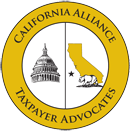In recent news, the California Supreme Court has finally made a judgment on a case brought about by the administrative appeal of DePasquale, Kelley & Company. After such a long-awaited decision, we are pleased to share that the court has finally affirmed our practiced position when it comes to the valuation of going concern and intangibles pursuant to 110(d) of the California Revenue and Taxation Code. This code states, “The value of intangible assets and rights relating to the going concern value of a business using taxable property shall not enhance or be reflected in the value of the taxable property. “
In addition to 110(d) California Revenue and Taxation Code 110(e) states, “Taxable property may be assessed and valued by assuming the presence of intangible assets or rights necessary to put the taxable property to beneficial or productive use.” This has been argued by counties that 110(e) is one in the same as 110(d). However, the Court has determined they are mutually exclusive definitions of intangibles.
Since the beginning of our practice, we have argued this very issue indicating that 110(e) is not referring to going concern and intangibles, but rather the requirements of use, zoning and other property rights required to put the taxable property to use. For almost 30 years we have argued properties that trade with business operations must reflect a segregation of nontaxable, such as intangible assets and income, from the taxable basis of real and personal property value. The court has agreed!
In 2017, DKC recognized the incorrect interpretation of these code sections regarding the valuation of the Westin St. Francis and appealed administratively to the San Francisco Assessment Appeals Board. The Board then ruled, giving some recognition for intangible assets. However, we, DePasquale, Kelley & Company and the taxpayer (Strategic Hotels & Resorts), believed the decision by the Board was insufficient and engaged the legal representation of Greenberg Traurig to appeal this decision further. It has been eight years since the reappraisal event and this judgement by the California Supreme Court ratifies our issues surrounding valuation methodologies affirming our long-standing practices and beliefs here at DePasquale, Kelley & Company. As we celebrate with our team, our clients, and our colleagues this is also a total win for the hospitality industry. As well as, for any taxpayer that acquires property integrated with business operations, rights, and other intangibles.
Property taxation is specific to the valuation of property. Therefore, we believe it is our job, on behalf of a taxpayer, to fight and appeal the enrolled assessment of a property when county’s assessors fail to separate going concern and intangibles from the real property valuation. We have found that throughout California there has and continues to be an issue surrounding this valuation methodology which determines the taxable property assessments pursuant to the California Constitution, statutes, and State Board of Equalization guidance. The California Supreme Court finally brings closure to the Court of Appeal decision that intangibles do exist. Therefore, it is a legal requirement for assessors to identify rights relating to going concern and intangibles. This then removes the related value from the taxable basis of real and personal property resulting in the net taxable value of the property.
It is important to state that the court decision does not automatically grant assessment reductions on this principal. This issue is complex and requires careful and thorough analysis with supportive data and valuation principles. Even ahead of the recent court decision and among other cases pertaining to this issue, DePasquale, Kelley & Company paved the way and has been successful in achieving reductions due to separating rights relating to going concern and intangibles from the taxable basis of real and personal property. Our unique modeling has brought about change in many counties. But the recent court case finally resolves the issue for any county that has not already recognized and practiced the responsibility to address the separation of rights relating to going concern and intangibles.
DePasquale, Kelley & Company welcomes inquiries from all concerned parties that would like to understand further the implication and opportunity for owned or leased property containing rights relating to going concern and intangibles. There is no cost for the initial consultation.
About the author
James R. DePasquale is the principle of DePasquale, Kelley & Company, a property tax consulting group specializing in the area of ad valorem appeals, mergers and acquisitions resulting in reappraisals, due diligence to assist in the forecast of ad valorem property taxes, and a full range of advisory and management services.
Mr. DePasquale is the current Chair/President of California Alliance of Taxpayer Advocates, a California nonprofit that protects the rights of taxpayers assuring transparency, uniformity and due process in the area of state and local taxation.


